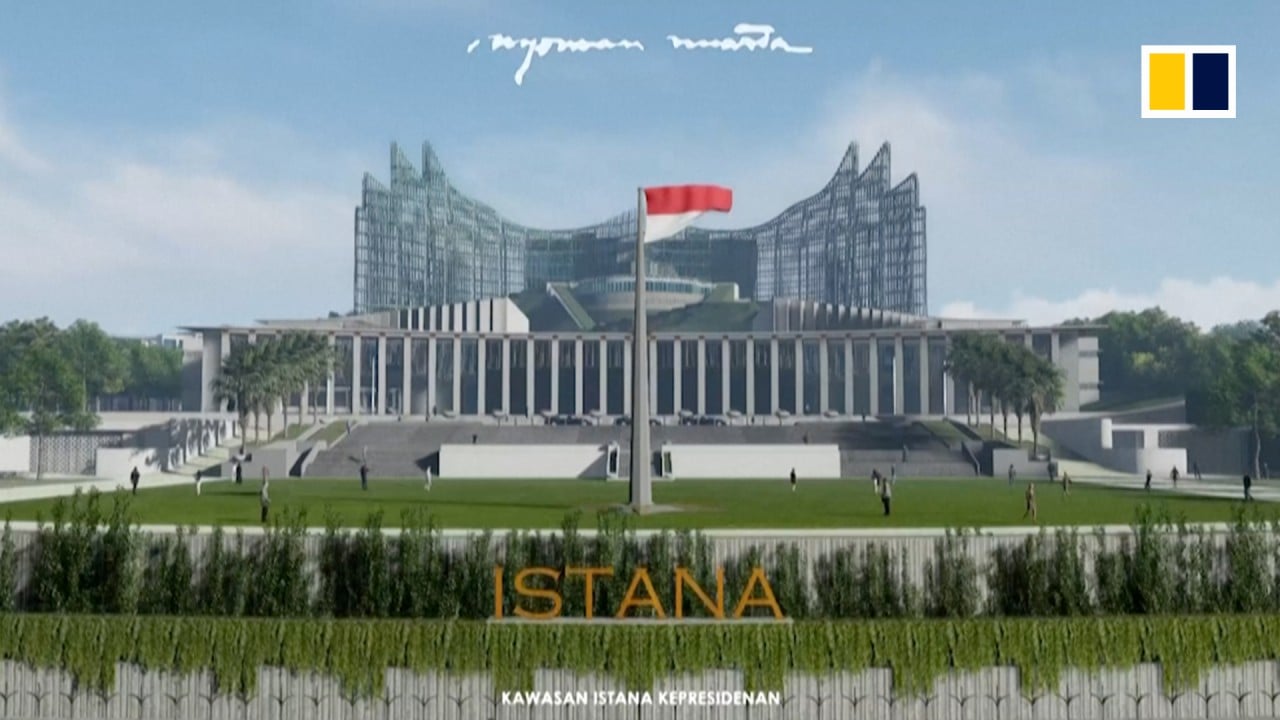Indonesia election 2024: as Jokowi ends his term, what issues do 3 presidential hopefuls face?
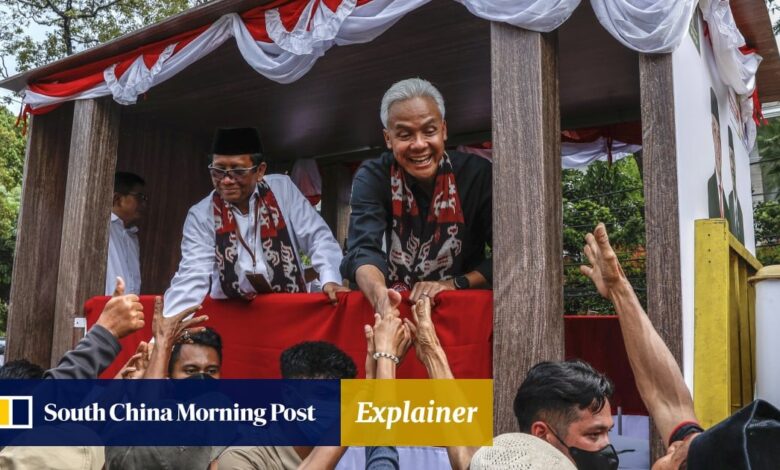
He provided hope to millions that Indonesia was pushing back against the elites who had dominated the country’s political scene following Suharto’s 32-year authoritarian rule. His victories in 2014 and again in 2019 against former military general Prabowo was hailed as a sign that the nation’s democracy was maturing.
Now, however, with Widodo’s son Gibran running as Prabowo’s vice-presidential candidate, there has been rising a perception that Widodo is eyeing the type of political dynasty all too familiar in Southeast Asia’s various semi-autocratic nations.
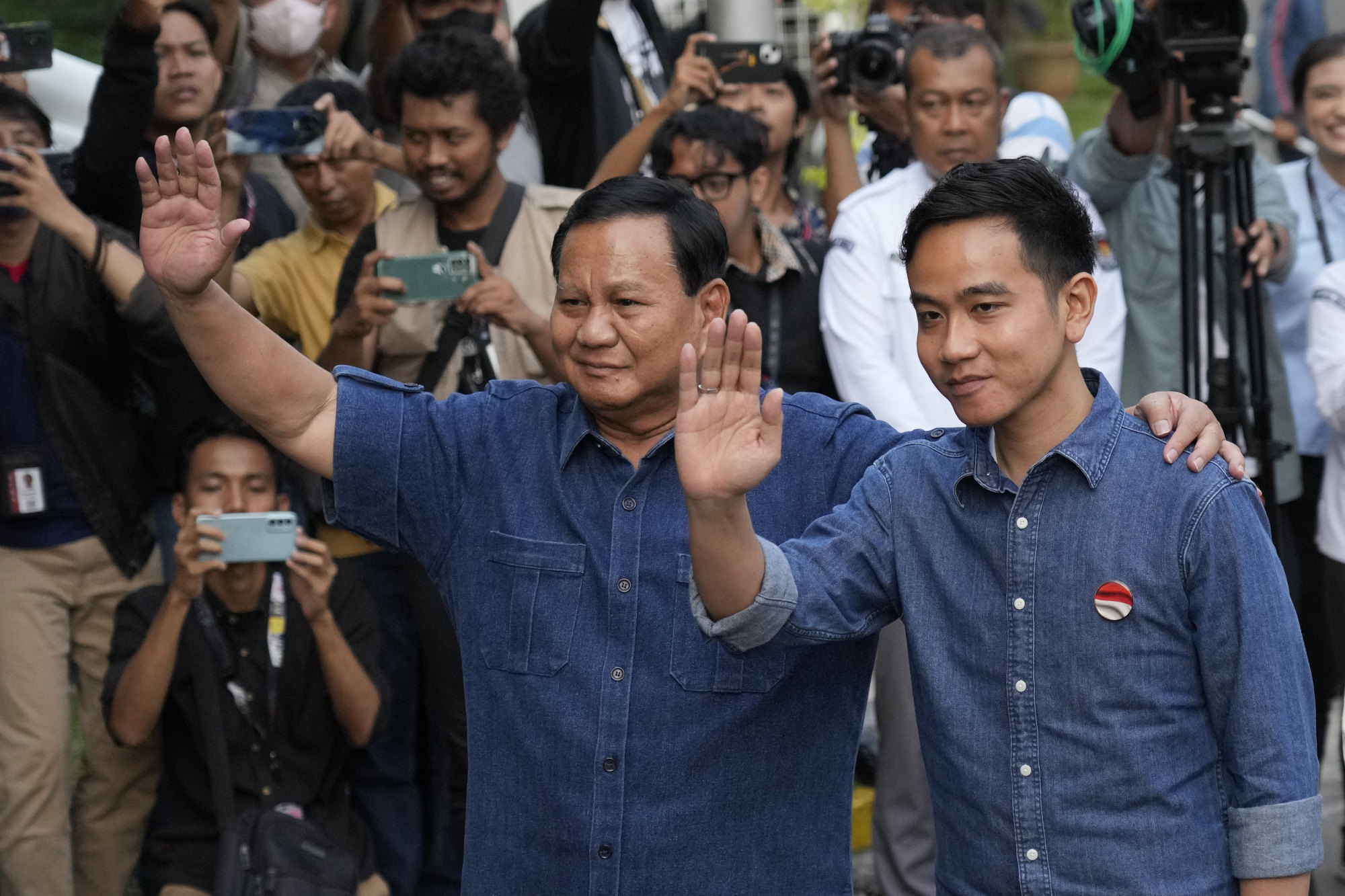
“What we’re seeing is a new version of [Widodo],” said political researcher Noory Okthariza, who works at the Centre for Strategic and International Studies in Indonesia. “This is not the same person we saw at the start of his career as a mayor.”
As his political prowess has grown, Widodo – known popularly as Jokowi – has been able to tame his staunchest political opponents such as Prabowo, Noory said.
Not leading a party of his own, observers say Widodo has been looking to establish a nascent dynasty and prolong his legacy by embedding his sons into the country’s political scene.
How this will play with voters remains yet to be seen, observers say. But the fiasco over Gibran’s nomination has given Widodo’s detractors ammunition to attack the president’s continued meddling in the electoral process.
Controversy over ‘jungle utopia’
While speculation at the start of the year suggested Widodo wanted to extend his presidency to safeguard the project, that might no longer be necessary.
A National Capital City Law – that was revised last month – has been put in place to future-proof the outgoing president’s flagship project, said observer Noory, essentially preventing a new regime from backing out of its construction.
Anies, who is lagging behind the other two candidates in opinion surveys, is the only one opposing Widodo and the ruling Indonesian Democratic Party of Struggle (PDI-P) thus far.
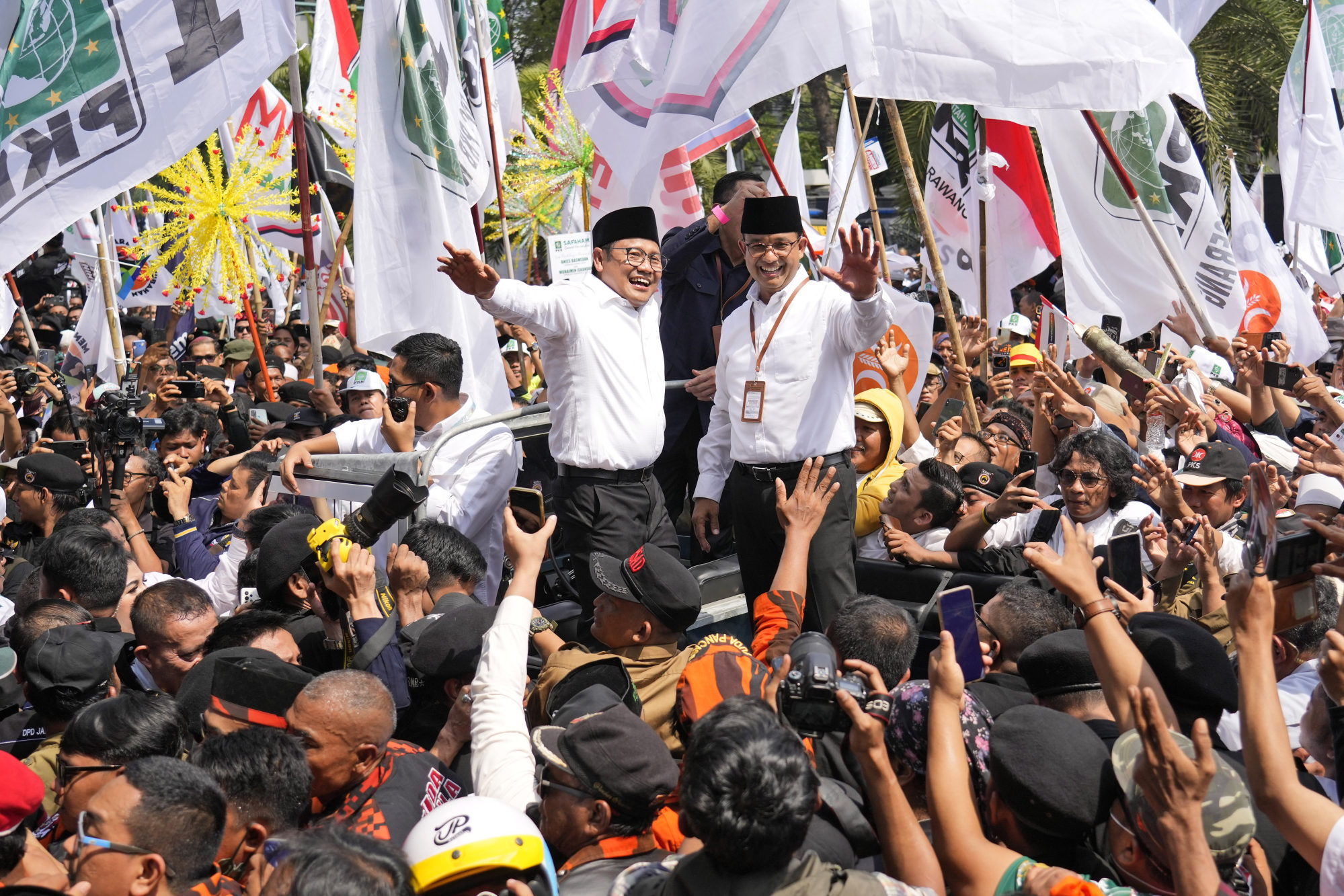
But Anies’ criticism of Widodo and his policies has become more subdued as of late, analysts say.
Even Widodo’s more controversial policies, including the Omnibus Bill on jobs creation, are not being challenged, said Sana Jaffrey, a research fellow at Australian National University specialising in Indonesian politics.
“Anies is not doing something controversial, and the reason for that might be that Jokowi has shown a tendency for using state institutions to influence these kinds of things,” she added, pointing out that there had been corruption investigations against Widodo’s former allies who have joined Anies’ camp.
“People would be cautious in terms of taking a very confrontational line against Widodo now, especially now that his son is in the running,” she said.
Jokowi warns successor against ‘changing the vision’ for Indonesia’s success
Jokowi warns successor against ‘changing the vision’ for Indonesia’s success
A lot will depend on how Anies focuses on the prospect of a change in policy and leadership to turn voters away from Widodo’s policies and brand of politics, observers say.
“The idea of keberlanjutan dan perubahan, or continuity and change, is really important for voters,” Noory said.
“For Anies, this is the time for him to exploit issues like Gibran’s ruling in his favour, especially as he is trailing in the polls.”
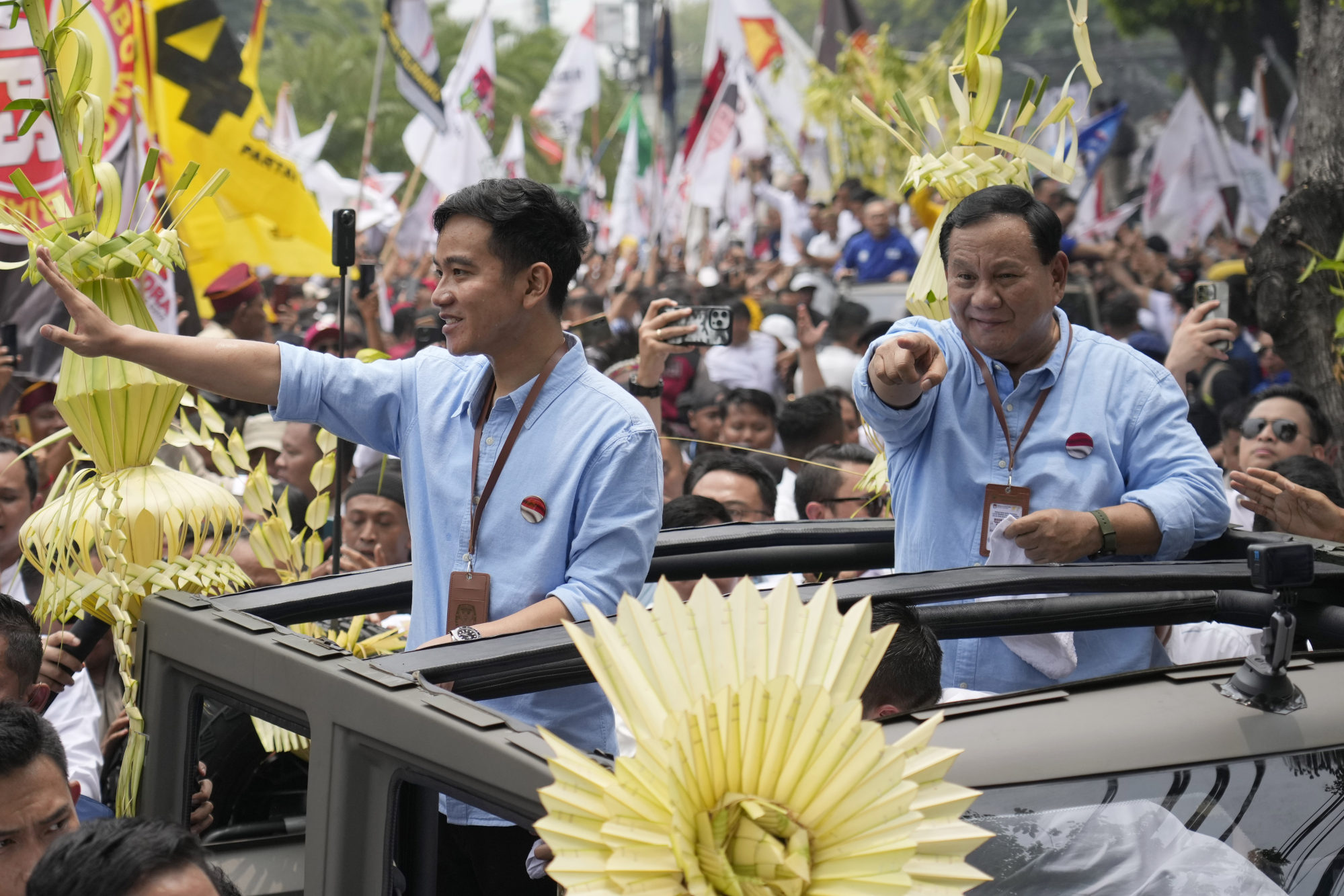
Watching the vote banks
According to Indonesia’s election commission, people aged under 40 will make up around 52 per cent of all eligible voters in the election. At least a third of them will be millennials, and 22 per cent are from Gen Z, born in the late 1990s.
Prabowo, 72, has suggested his nomination of Gibran, 36, will be imperative to courting the youth vote, even as he has turned to social media himself to connect with Indonesia’s young people.
Adhi Priamarizki, a research fellow with the Indonesia programme at Singapore’s S. Rajaratnam School of International Studies, said Prabowo’s “nicely curated Instagram feed” and attempts to present a friendly image of himself had played well with younger voters.
Can Indonesia’s Anies Baswedan convince voters he is a moderate?
Can Indonesia’s Anies Baswedan convince voters he is a moderate?
The presidential hopefuls are also looking to win the Islamic voting bloc.
Ganjar and Anies might have an upper hand with these voters, some observers suggest, as they have chosen vice-presidential candidates with strong links to Indonesia’s biggest Islamic organisation, Nahdlatul Ulama (NU).
Eastern Java, Indonesia’s third-most populous province, is the heartland of the NU and is going to be the most important battleground in this coming election, Noory said.
While Prabowo did not choose a candidate with backing from the NU, his manifesto showed that he is hoping to gain favour with Islamic voters through “endowment”, Jaffrey said, referring to donations.
“[Prabowo and Gibran] have connections with the president who can make some of these promises credible, even before the election,” she said.
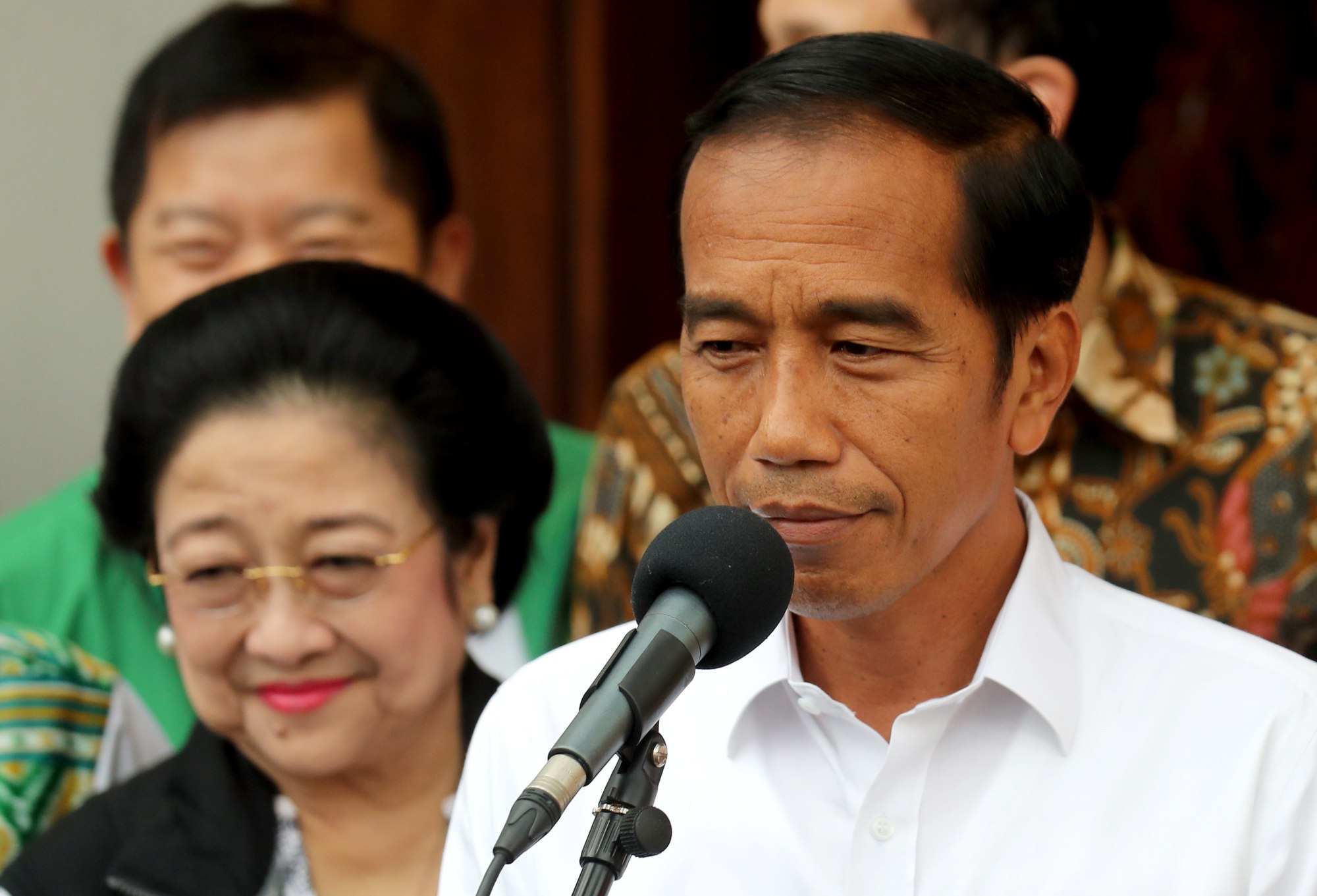
Internecine rivalries
Perhaps what observers are watching most closely, is how Megawati Soekarnoputri, chairwoman of the ruling PDI-P party, will respond to Widodo’s son joining hands with Prabowo, who provides the biggest competition to her nominee, Ganjar.
Both Widodo and his son are still members of her party, and Widodo has used the PDI-P as a political vehicle during his time in power.
Growing rifts between Megawati and Widodo have been discernible over the past few months, and observers say the party leader, a former Indonesian president herself, is likely to perceive Widodo’s move as a “stab in the back”.
She has been very vocal about the importance of loyalty, and the PDI-P’s displeasure with Widodo and his son might come to a head, particularly if the election becomes a two-horse race, with leading candidates Ganjar and Prabowo fighting it out.
“Things might become more polarising then, and the PDI-P might be more keen to attack Widodo to bring Prabowo and Gibran down,” Noory said.


